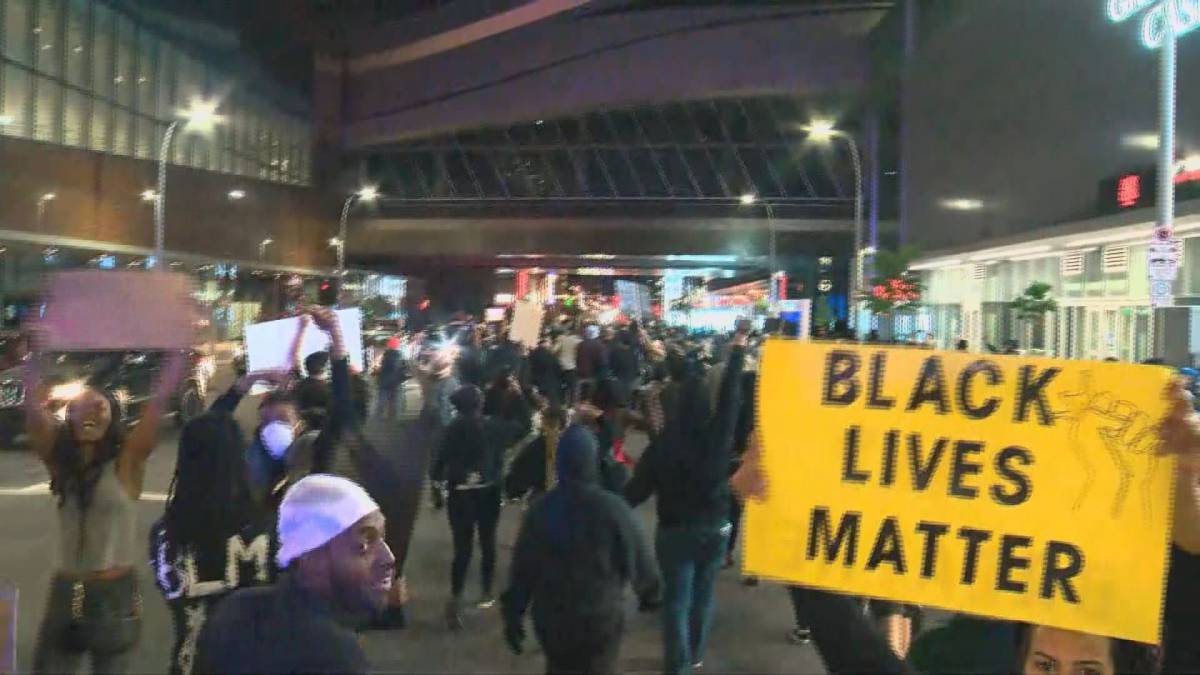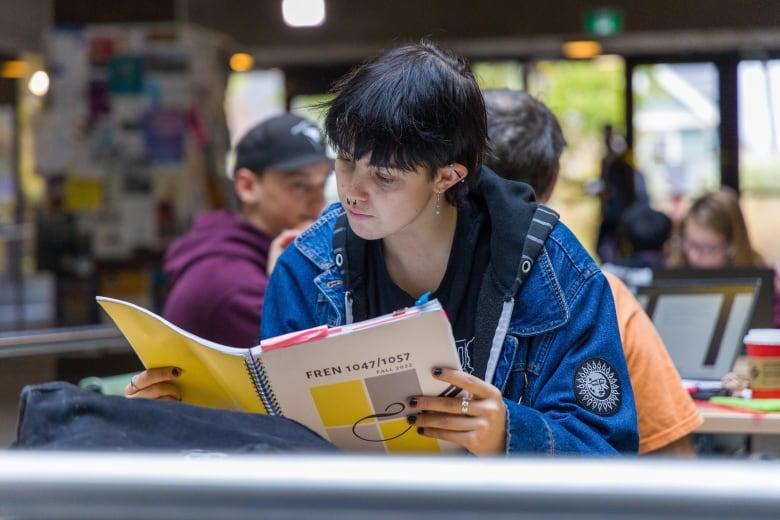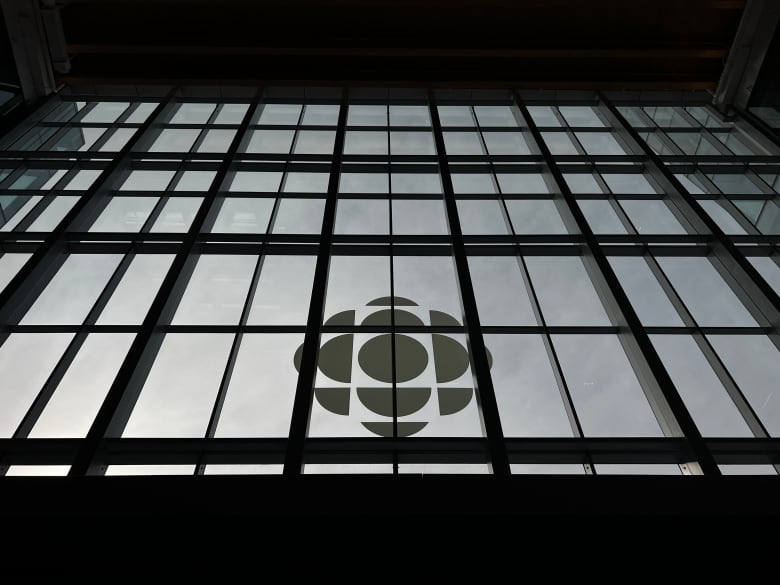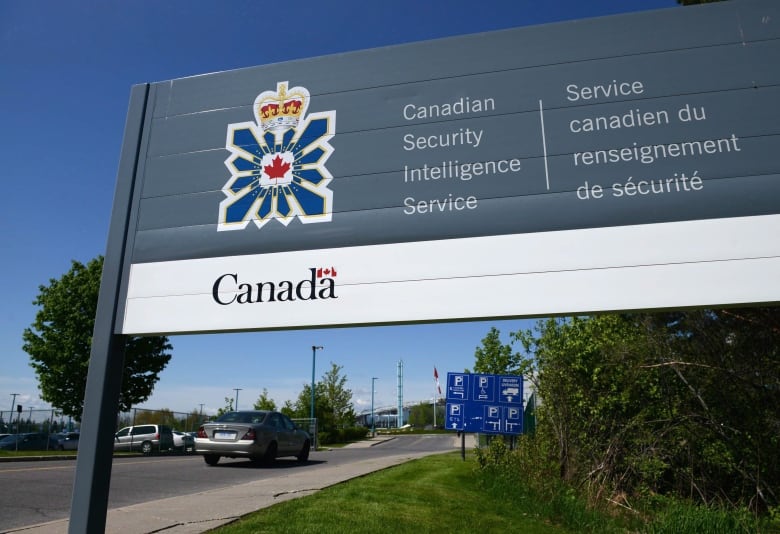News
FEAR OF THE POSSIBLE. POLICING IN CRISIS.

|
|
FEAR manipulates and transforms our Fellow Citizens and Protectors every day.TRANSPARENCY – ACCOUNTABILITY – COMMUNITY POLICINGKATHY PLEASE CONSIDER…Police, body of officers representing the civil authority of government. Police typically are responsible for maintaining public order and safety, enforcing the law, and preventing, detecting, and investigating criminal activities. These functions are known as policing. ( Webster’s dictionary).The definition maybe simplified, but the basis states that Police are persons of authority, armed and able to maintain public order and safety.We have seen may cases of violence set upon Citizens and Police alike in North America.Justified violence? Is that the important issue here? The main issue is that Our Society is filled with FEAR.Police fear for their lives, loss of authority while Citizens Fear those who are suppose to be protecting them.Why the FEAR? So many reasons…Armed CriminalitySocial injustice & prejudiceRacism (personal & institutionalizedAvailability of weaponsSupposed media availability(everyone has a video)Generational Poverty & UnemploymentFear of all kinds transforming our society into groups…cultural, social, political, economic classes, race.Even when we protest the injustices of the world we come face to face with Fear whether it be institutional ignorance, police/social oppression, societal exclusion’s.Have you ever been in a predominately poverty stricken community walking at night, see three youths coming towards you on side walk? Hoodies in the dark. What to do. Fear of the possible.A couple driving a premier vehicle in an exclusive neighborhood are stopped. If they were white they’d still be driving, but no. Police check. Why? Fear of the possible.Lets get rid of this fear. Lets change how Police and Policing are viewed. No longer should police be viewed as those to be feared.Police should be Trained as PEACE KEEPERSPolice Keepers do what? Stand between opposing forces to negotiate and stop violence.I experienced an event in New York City long ago. We were on a bus when two officers came aboard. A young man stood up and pointed his fire arm at them. What did they do? Have a shootout? No. One officer stepped back down the stairs while the other spoke to the young man. We were all involved in this conversation. The officer knew how to de escalate the situation. The young man went down the stairs, sitting on a bench with an officers while the other stood behind him. Peace Keepers talk, discuss, influence situational experiences. As a clergyman I to learnt the power of intelligent gabbing. Explain the pros and cons of existing or future events. Have a gun, what can happen to you or others if that gun is used.Communicate-Walk in Their Shoes – RespondPeace Keepers find solutions to problems. They often hash out political-Personal issues between individuals and groups. Policing has become a multi tasking career. Part police, social worker & diplomate. Remember the Police are agents of The Justice system but they do not punish. The Courts decide what is fair and just. The Police learn and proclaim Laws of the land. Therefore if someone has been perceived to break a law, the police respond in an intelligent controlled manner. Most times violence is not needed. If a law breaker does not fear the police, knowing they will be going to court where they’d be judged violence can be avoided. Do the Police know this? Is every Citizen in Our Land viewed as innocent or possibly guilty. Do the Police Fear Us(the Citizenry) so much that weapons in hand have become habitual?Policing needs to become Community Centered. Police and our citizens need to learn what it is like to live in one another’s shoes. I lived in the Bronx of @ a year. White, Black , Hispanic, Asian…we all lived below the poverty line, among those who stood outside of the American experience. Low income, addiction, low prospects. Yet the communities in the Bronx were centers of helpful, charitable Community also. Respect given and taken by all. The police lived in the community. They knew the Fears, Joys and Expectations of their neighbors and responded with open hands & hearts. Shit happened, yes, but there was more good then bad.We need to know each other, seeing our neighbors with new eyes. The prejudices of the past and present can be understood and dealt with intelligently. A Peace Keeper is possibly the most flexible of our armed forces. Thrown into every possible situation they need to adapt and respond in a constructive manner. So too Our Police. Pulling a weapon is a last resort. A Good person standing in their uniform, ready to serve their neighbor should be all that’s needed. Armed yes. There are situation that require the authority of a weapon, But the power of intelligent thoughts can be voiced, transforming a situation of potential violence into a act of peaceful good.Our Police need to be trained as peace keepers. The days of turning off body cams, taking a hooligan down town for a beating, hassling someone cause they are in a car, neighborhood not symbolic of their demographic Must end.Eric Cartman, a character of South Park bark’s these words “Respect My Authority”.That is what is happening throughout North America. Police FEAR loss of their authority. Every ones seemingly questioning that authority on social media, videos and the media. I guess what I am saying is Authority is not as powerful as Respect. Found in the same statement, both words actually compliment each other. Respect My Authority. Police are not in themselves authority, but represent Authority. Who gives them this authority? We do. It is not Them and Us. It is US. WE are the authority they represent.As God says “I Am” we the people should proclaim to all RESPECT OUR AUTHORITY. Who will represent us in the world? The Peace Keepers of society, our neighbor’s “THE POLICE”.STEVEN KASZABBradford, Ontarioskaszab@yahoo.ca
News
CTV National News: Tax hike coming for Canadians? – CTV News
[unable to retrieve full-text content]
CTV National News: Tax hike coming for Canadians? CTV News




Source link
News
2024 federal budget's key takeaways: Housing and carbon rebates, students and sin taxes – CBC News
Finance Minister Chrystia Freeland today tabled a 400-page-plus budget her government is pitching as a balm for anxious millennials and Generation Z.
The budget proposes $52.9 billion in new spending over five years, including $8.5 billion in new spending for housing. To offset some of that new spending, Ottawa is pitching policy changes to bring in new revenue.
Here are some of the notable funding initiatives and legislative commitments in budget 2024.
Ottawa unloading unused offices to meet housing targets
One of the biggest pillars of the budget is its housing commitments. Before releasing the budget, the government laid out what it’s calling Canada’s Housing Plan — a pledge to “unlock” nearly 3.9 million homes by 2031.


The government says two million of those would be net new homes and it believes it can contribute to more than half of them.
It plans to do that by:
- Converting underused federal offices into homes. The budget promises $1.1 billion over ten years to transform 50 per cent of the federal office portfolio into housing.
- Building homes on Canada Post properties. The government says the 1,700-plus Canada Post offices across the country can be used to build new homes while maintaining postal services. The federal government says it’s assessing six Canada Post properties in Quebec, Alberta and British Columbia for development potential “as a start.”
- Rethinking National Defence properties. The government is promising to look at redeveloping properties and buildings on National Defence lands for military and civilian use.
- Building apartments. Ottawa is pledging a $15 billion top-up to the Apartment Construction Loan Program, which says it will build 30,000 new homes across Canada.
Taxing vacant land?
As part of its push on housing, the federal government also says it’s looking at vacant land that could be used to build homes.
It’s not yet committing to new measures but the budget says the government will consider introducing a new tax on residentially zoned vacant land.
The government said it plans to launch consultations on the measure later this year.
Help for students
There’s also something in the budget for students hunting for housing.


The government says it will update the formula used by the Canada Student Financial Assistance Program to calculate housing costs when determining financial need, to better reflect the cost of housing in the current climate.
The government estimates this could deliver more aid for rent to approximately 79,000 students each year, at an estimated cost of $154.6 million over five years.
The government is also promising to extend increased student grants and interest-free loans, at an estimated total cost of $1.1 billion this year.
Increase in taxes on capital gains
To help cover some of its multi-billion dollar commitments, the government is proposing a tax hike on capital gains — the profit individuals make when assets like stocks and second properties are sold.
The government is proposing an increase in the taxable portion of capital gains, up from the current 50 per cent to two thirds for annual capital gains over $250,000.
Finance Minister and Deputy Prime Minister Chrystia Freeland said this year’s federal budget will pave the way for Canada to build more homes at a pace not seen since the Second World War. The new investment and changes to funding models will also cut through red tape and break down zoning barriers for people who want to build homes faster, she said
Freeland said the change would impact the wealthiest 0.1 per cent.
There’s still some protection for small businesses. There’s been a lifetime capital gains exemption which allows Canadians to exempt up to $1,016,836 in capital gains tax-free on the sale of small business shares and farming and fishing property. This June the tax-free limit will be increased to $1.25 million and will continue to be indexed to inflation thereafter, according to the budget.
The federal government estimates this could bring in more than $19 billion over five years, although some analysts are not convinced.
Disability benefit amounts to $200 per month
Parliament last year passed the Canada Disability Benefit Act, which promised to send a direct benefit to low-income, working-age people with disabilities.
Budget 2024 proposes funding of $6.1 billion over six years, beginning this fiscal year, and $1.4 billion per year ongoing, for a new Canada Disability Benefit.
Advocates had been hoping for something along the lines of $1,000 per month per person. They’ll be disappointed.
According to the budget document, the maximum benefit will amount to $2,400 per year for low income individuals with disabilities between the ages of 18 and 64 — about $200 a month.
The government said it plans for the Canada Disability Benefit Act to come into force in June 2024 and for payments to start in July 2025.
Carbon rebate for small businesses coming
The federal government has heard an earful from small business advocates who accuse it of reneging on a promise to return a portion of carbon pricing revenues to small businesses to mitigate the tax’s economic costs.
The budget proposes to return fuel charge proceeds from 2019-20 through 2023-24 to an estimated 600,000 businesses with 499 or fewer employees through a new refundable tax credit.
The government said this would deliver $2.5 billion directly to Canada’s small- and medium-sized businesses.
Darts and vape pods will cost more
Pitching it as a measure to cut the number of people smoking and vaping, the Liberals are promising to raise revenues on tobacco and smoking products.
- Just Asking wants to know: What questions do you have about quitting smoking or vaping? Do you think sin taxes will encourage smoking cessation? Fill out the details on this form and send us your questions ahead of our show on April 20.
Starting Wednesday, the total tobacco excise duty will be $5.49 per carton. The government estimates this could increase federal revenue by $1.36 billion over five years starting in 2024-25.


The budget also proposes to increase the vaping excise duty rates by 12 per cent effective July 1. That means an increase of 12 to 24 cents per pod, depending on where you live.
Ottawa hopes this increase in sin taxes will bring in $310 million over five years, starting in 2024-25.
More money for CBC
Heritage Minister Pascale St-Onge has mused about redefining the role of the public broadcaster before the next federal election. But before that happens, CBC/Radio-Canada is getting a top-up this year.


The budget promises $42 million more in 2024-25 for CBC/Radio-Canada for “news and entertainment programming.” CBC/Radio-Canada received about $1.3 billion in total federal funding last year.
The government says it’s doing this to ensure that Canadians across the country, including rural, remote, Indigenous and minority language communities, have access to independent journalism and entertainment.
Last year, the CBC announced a financial shortfall, cut 141 employees and eliminated 205 vacant positions. In a statement issued Tuesday, CBC spokesperson Leon Mar said the new funding means the corporation can balance its budget “without significant additional reductions this year.”
Boost for Canada’s spy agency


As the government takes heat over how it has handled the threat of foreign election interference, it’s promising more money to bolster its spy service.
The Canadian Security Intelligence Service is in line to receive $655.7 million over eight years, starting this fiscal year, to enhance its intelligence capabilities and its presence in Toronto.
The budget also promises to guarantee up to $5 billion in loans for Indigenous communities to participate in natural resource development and energy projects in their territories.
These loans would be provided by financial institutions or other lenders and guaranteed by the federal government, meaning Indigenous borrowers who opt in could benefit from lower interest rates, the budget says.
News
Canada's 2024 budget announces 'halal mortgages'. Here's what to know – National Post
Article content
The 2024 federal budget says the Liberal government plans to introduce “halal mortgages” as a way to increase access to home ownership.
Here’s what “halal mortgage” means and what that effort might look like:
Article content
What does Canada’s 2024 budget say?
The plan mentions the creation of “alternative financing products, including halal mortgages” as a means to “enable Muslim Canadians, and other diverse communities, to further participate in the housing market.”
Article content
Ottawa is “exploring” measures that could change “the tax treatment of these products” or provide a “new regulatory sandbox for financial service providers,” it says.
Recommended from Editorial
The government began consultations in March 2024 with financial services providers and “diverse communities” as it sets out to expand mortgage policies to include alternative financing, the budget adds. The Liberal government says it will make announcement detailing what such a plan would look like this the fall.
Why are regular mortgages not considered halal?
Islamic law, or Sharia, prohibits Muslims from charging or receiving interest because they are seen as exploitative and immoral. Instead of giving loans, Islamic banks use different payment structures to avoid charging interest.
What are halal mortgages?
Sharia-compliant mortgages include payment structures that take interest out of the equation. There are three common types of halal mortgages: ijara, Musharaka, and Murabaha.
Article content
Ijara is a rent-to-own model in which a bank buys the asset and leases it back out to the customer over a set period. The payments go toward both the capital and provide a profit for the financial institution.
Musharaka, a form of partnership with the financier, involves both parties owning the property until the equity is gradually transferred and the partnership dissolves.
Murabaha is a credit system in which the ownership is immediately sold to the customer, with profits included in the final offer. The buyer’s credit history, deposit and terms of the agreement are factored in.
Because these structures are considered more risky, they are often more expensive than a traditional interest loan. Canada’s big banks do not currently provide halal mortgages, which the Liberal government hopes to change. According to Canadian Press, lack of halal financial options have left many Muslims waiting for smaller firms to allow them to make investments and buy homes.
Our website is the place for the latest breaking news, exclusive scoops, longreads and provocative commentary. Please bookmark nationalpost.com and sign up for our daily newsletter, Posted, here.
Share this article in your social network
-



 Tech21 hours ago
Tech21 hours agoiPhone 15 Pro Desperado Mafia model launched at over ₹6.5 lakh- All details about this luxury iPhone from Caviar – HT Tech
-



 Sports21 hours ago
Sports21 hours agoLululemon unveils Canada's official Olympic kit for the Paris games – National Post
-



 Science23 hours ago
Science23 hours agoAstronomers discover Milky Way's heaviest known black hole – Xinhua
-
Media23 hours ago
NPR's liberal bias: Editor exposes media's lack of viewpoint diversity – USA TODAY
-
News19 hours ago
Toronto airport gold heist: Police announce nine arrests – CP24
-



 Tech19 hours ago
Tech19 hours agoVenerable Video App Plex Emerges As FAST Favorite – Forbes
-
News16 hours ago
Loblaws Canada groceries: Shoppers slam store for green onions with roots chopped off — 'I wouldn't buy those' – Yahoo News Canada
-
Investment14 hours ago
Saudi Arabia Highlights Investment Initiatives in Tourism at International Hospitality Investment Forum







